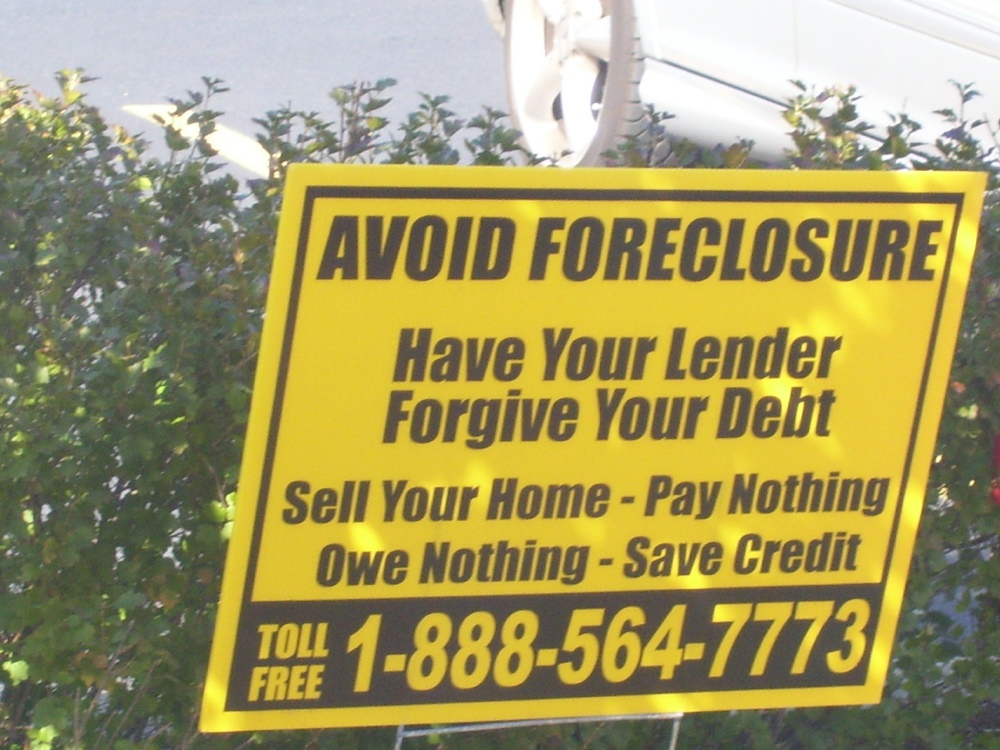
The Housing Market and the Economy
Before the housing market crisis threatened the collapse of the American economy, housing prices formed the foundation of an apparent economic boom. Unfortunately, much of that boom was built on a bubble of speculation, in the housing market and elsewhere. When the bubble burst, the economy slid into a deep recession not seen since the days of the Great Depression in the 1930s.
The economy has technically been in recovery since 2009, and many large corporations, along with Wall Street, have enjoyed record profits and all time highs. However, many sectors, especially employment and housing, have lagged far behind. One of the major factors dragging the pace of the recovery is the high number of underwater mortgages. Unless and until America solves its housing problem once and for all, it’s difficult to imagine an economy that truly feels like a recovery for everyday Americans.
While a long term solution does not seem to be at hand, there are programs in place to ease the burden for struggling homeowners. The Making Home Affordable Program and a homeowner bailout program jointly administered by Fannie Mae and Freddie Mac approach the program on the federal level. In the meantime, some local governments have taken matters into their own hands, offering eminent domain as a possible way out for homeowners trapped by underwater mortgages.
Underwater Mortgages Defined
The term underwater mortgage accurately defines the circumstances that trap many homeowners: they owe more on their mortgages than their houses are worth. In many cases, mortgages were obtained at the peak at the housing bubble, when market values were drastically inflated. Since the housing market crash, housing prices in many markets have taken a nosedive. Although there has been some recovery in recent years, there is no expectation that prices will ever regain their pre-crisis heights.
Making the problem worse in some cases are high interest rates on the mortgages homeowners are stuck with. Although as of 2013, mortgage interest rates are at all time low levels, homeowners who are underwater lack the equity that is traditionally necessary to qualify for a loan modification. In plain English, homeowners with underwater mortgages need help to be released from their dilemma.
Young Homeowners and Underwater Mortgages
As of the second quarter of 2012, approximately one-third of mortgages were underwater, according to a report issued by real estate company Zillow and reported by CNN Money. A particularly alarming statistic from the report was that 48 percent mortgage holders under age 40 were saddled with underwater mortgages. This situation creates ramifications that affect individual homeowners and the overall economy alike.
These young homeowners frequently have growing families, which would ordinarily mean that they would be shopping for larger homes. However, because they are stuck with underwater mortgages, many would-be homebuyers looking to move up are staying put because they cannot afford the financial and credit hit from a short sale. Others remain in their homes hoping to recover enough value to erase their negative equity. As a result, first time buyers seeking “starter” homes are faced with an artificially tight market.
Making Home Affordable Program
The Making Home Affordable program, instituted by the Obama administration, is designed to allow struggling homeowners to gain financial relief. The far reaching program has options available for veterans, homeowners who have lost their jobs and homeowners who have FHA loans as well as help for homeowners with conventional mortgages whose homes have lost significant market value. While these programs have provided much needed relief to some families, others have been frustrated by the process of attempting to navigate the complicated application requirements.
Fannie Mae and Freddie Mac to the Rescue – Sort Of
Strategic default is the process where homeowners deliberately walk away from their mortgages. Although the phenomenon is not new, strategic default gained prominence in 2008, when they accounted for 17 percent of all foreclosures. In response to strategic default and the continuing high number of underwater mortgages, Fannie Mae and Freddie Mac announced plans to allow some homeowners to seek relief through simplified channels – either through short sales or mortgage release.
A short sale allows homeowners to sell their homes for less than the price of their mortgages, relinquish the home and be relieved of any further financial obligation. A mortgage release allows homeowners to relinquish the home without a short sale while still being released from further obligation to make mortgage payments. Both programs involve significant hits to homeowners’ credit scores, but spare them the pain of a protracted foreclosure process.
Local Government and Eminent Domain
Some local governments aren’t waiting for the federal government to get its act together. They are exploring various versions of eminent domain – not to evict struggling homeowners, but to help them remain in their homes. Under these proposed programs, local government entities would go to court to obtain approval to pay “fair market value” for homes where homeowners are underwater – prices which would often be far less than what the homeowners still owed. After obtaining the property, the governmental agency would offer to resell the home to the homeowner for a drastically reduced price, who would obtain a new loan to finance the purchase. Not only would such a program help homeowners remain in their homes, it would reduce the prospect of unsightly blight (and potential crime) associated with properties left empty by bank foreclosures.
For Further Reading
- American Public Media, David Lazarus: Fannie, Freddie to Let Some Homeowners Walk Away
- Bright Hub, Audrey F. Henderson: Understanding the Econonmic Impact of the Housing Market
- CNN Money, Les Christie: Half of Mortgage Borrowers Under 40 Are Underwater
- Deseret News, Editorial Opinion Post: In Our Opinion, Underwater Mortgages Dragging Down the Economy
- NBC News Economy Watch, John B. Schoen: Governments Mull Radical Solution to Underwater Mortgages – Seize Them
- NBC News Economy Watch, John B. Schoen: One in Three Mortgage Holders Still Underwater
- NPR, Tamara Keith: Walking Away from the House She Can Afford
- Think Progress, Julia Gordon: No, the Government Isn’t Launching a New Bailout Program for Underwater Homeowners
- U.S. Department of the Treasury and U.S. Department of Housing and Urban Development: Making Home Affordable

For ocean ecosystems, certainly. Emma Johnston at the University of South Wales, who will be speaking at BBC Future s World-Changing Ideas Summit, argues that we ought to think more about the impact of marine urban sprawl . Even more minor coastal constructions can transform the seas. She and her colleagues estimate that some estuaries in Australia, the United States and Europe have had more than 50% of their natural coastline modified with artificial structures.